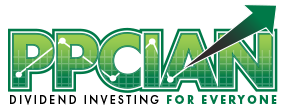So far, I’ve been talking quite a bit about high-level pay per click career tips. After all, the charter of PPC Ian is just that: Empowering pay per click professional by focusing on career tips and strategy. However, the time has come to start including some specifics as well. Pay per click is a very operational role, one that requires initiatives to grow campaigns. It’s actually quite interesting: After all these years, many of the core initiatives are the same. Today, I will highlight 5 great PPC initiatives that will immediately grow your Google, Yahoo, and Microsoft campaigns. This is a random group. I’m not saying these are the best initiatives or the only initiatives, but they are certainly ones that will jumpstart any PPC operation.
PPC Initiative 1: Brainstorm Keywords With Your Vertical Manager

I’m listing this initiative first because it’s a fun one, an initiative that can totally break up the PPC grind while driving value. Automated keyword generation (via the Google Keyword Tool, third party solutions such as Trellian, and your site’s catalog) is absolutely essential in capturing the basic keywords, those keywords that get you into the game. However, if you want to go above and beyond the basics and win the game, you need to get creative. My suggestion: Form a partnership with your vertical manger, category director, or whatever your company calls the person who runs your business unit.
Specifically, set up a structured brainstorming session (or a series of sessions) and generate keywords on the whiteboard. You will be amazed at the creative keyword ideas you brainstorm, keywords that will change the game for your organization because they lack competition and are not available via automated generation platforms. My other suggestion: Think about very creative ways to leverage broad match keywords with aggressive negative matching. There are many innovative strategies waiting to be uncovered, some which can make or break an entire vertical.
PPC Initiative 2: Write Custom Ad Copy For Your Mid-Volume Keywords
I like to call this initiative the one keyword per ad group strategy. I actually coined that term about 3.5 years ago and am quite proud of it! Surprisingly, when I first started championing the one keyword per ad group strategy, it was a little difficult to gain supporters. These days, I can’t find a PPC organization that does not use the strategy in one form or another. My advice is simple: Target your mid-volume keywords and write highly customize ads (hundreds of them) with the goal of optimizing click through rate.
You may ask: Why the mid-volume keywords? My answer is simple. The very high volume keywords are generic enough that your current ads are already very customized. Just think about it: Your ad for the word "mortgage" is already targeted enough because the word is so generic that it defines the entire category. Now, let’s say we’re talking about the mid-volume keyword "California Mortgage Loan". Because this keyword contains "California" and "Loan", we’re perfectly set up to write a custom ad, one that has a custom title, body, and also display URL. One of the challenges with this strategy is nobody wants to sit down and write the hundreds of ads. My suggestion: Split the efforts across the team, everyone needs to participate in the effort!
PPC Initiative 3: Analyze Top Performing Keywords From Last Year
A lot of stuff can happen over the course of the year. Campaign managers come and go, campaigns change hands, mistakes are made, and business models can change. All of this change can create some serious opportunity if you take the time to look back. My suggestion: Run a quick keyword level analysis comparing last month to the same month in the prior year. Look for keywords that used to drive significant conversions but are now lagging behind. I’m often surprised to find keywords that are unintentionally paused, underbid, or simply have ad copy that’s no longer beating the competition. This analysis is a super way to generate a queue of tactical PPC work that can drive real results.
Search Marketing Initiative 4: Focus On More Granular Targeting
If you’re in financial services, you’re no stranger to geo targeting. Taking mortgage as an example, a lead form in California is clearly worth more than one in North Dakota. Why? It’s much easier to split the lead in California and sell it to multiple different lenders (the demand for that lead is higher). For this reason alone, geo targeting offers a great way to bid more efficiently.
However, I’d also like to suggest that you test more granular targeting even if you’re in a vertical like product shopping, one that doesn’t have a clearly different product value by geo. I’ve seen it many times: Users in different geographies convert at different rates. Often times, users in highly populated metro areas like San Francisco convert the best. For that reason alone, you can bid more effectively by geo targeting your campaigns. My only word of caution: Only change your bids by geo when you have statistically significant data. The more you segment your keywords, the longer it can take to accumulate statistically significant data.
Search Marketing Initiative 5: Achieve Match Type Parity
As a closing tip, I highly recommend a regular look at your match type parity. Parity is a very simple concept. Basically, you want to look at your global keyword set and make sure you’re fully deployed on all match types. Because it offers the highest conversion rate and profitability, I’m a huge fan of exact match. Consequently, I always enjoy performing a parity analysis and making sure all of my keywords are deployed on exact. I’m often amazed how many campaigns are overly weighted on the broad match side. This creates a great opportunity to take those broad match keywords and also deploy them on exact, at slightly higher bids, for added control, coverage, and profits!
Image of Initiatives © iStockPhoto – marekuliasz
